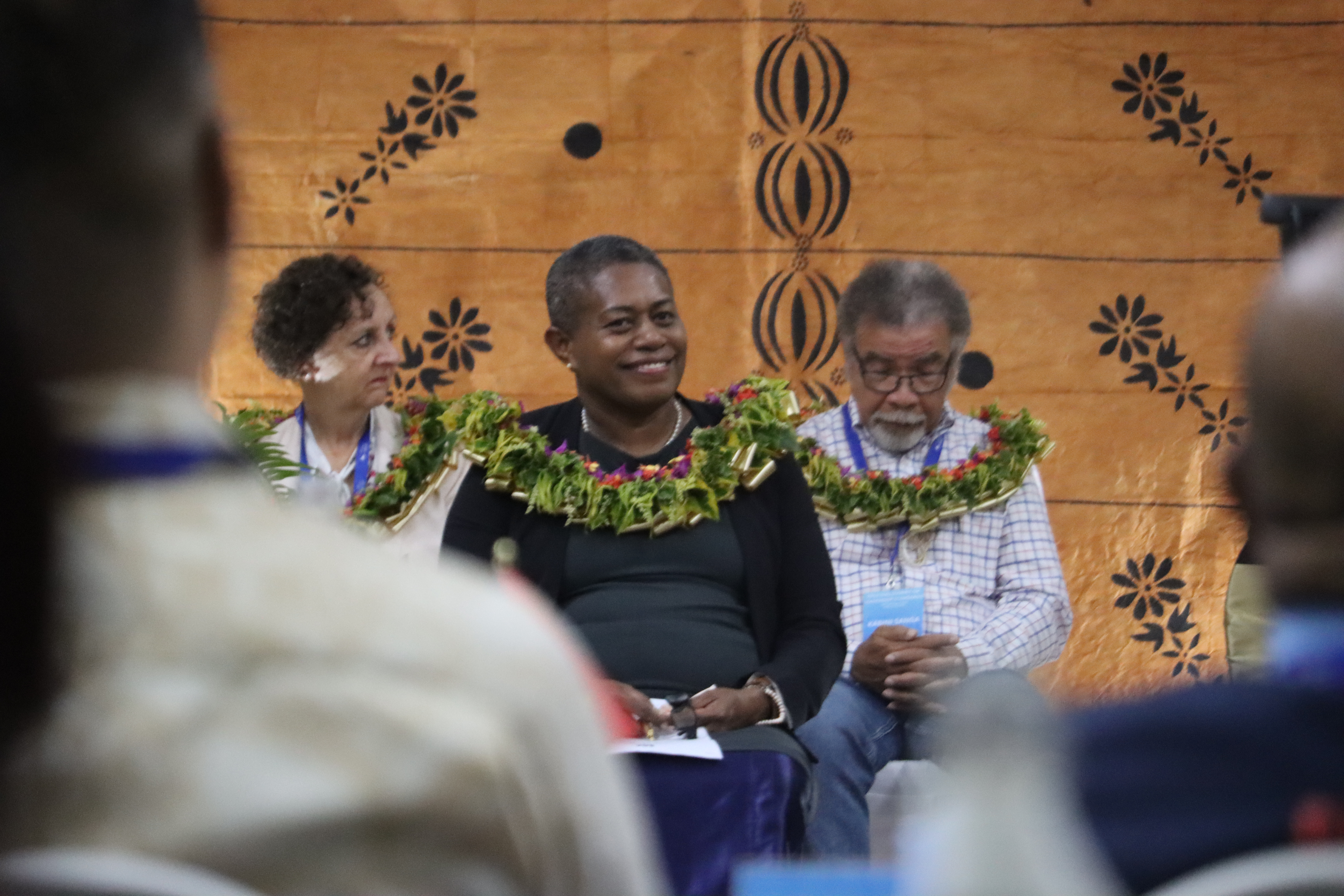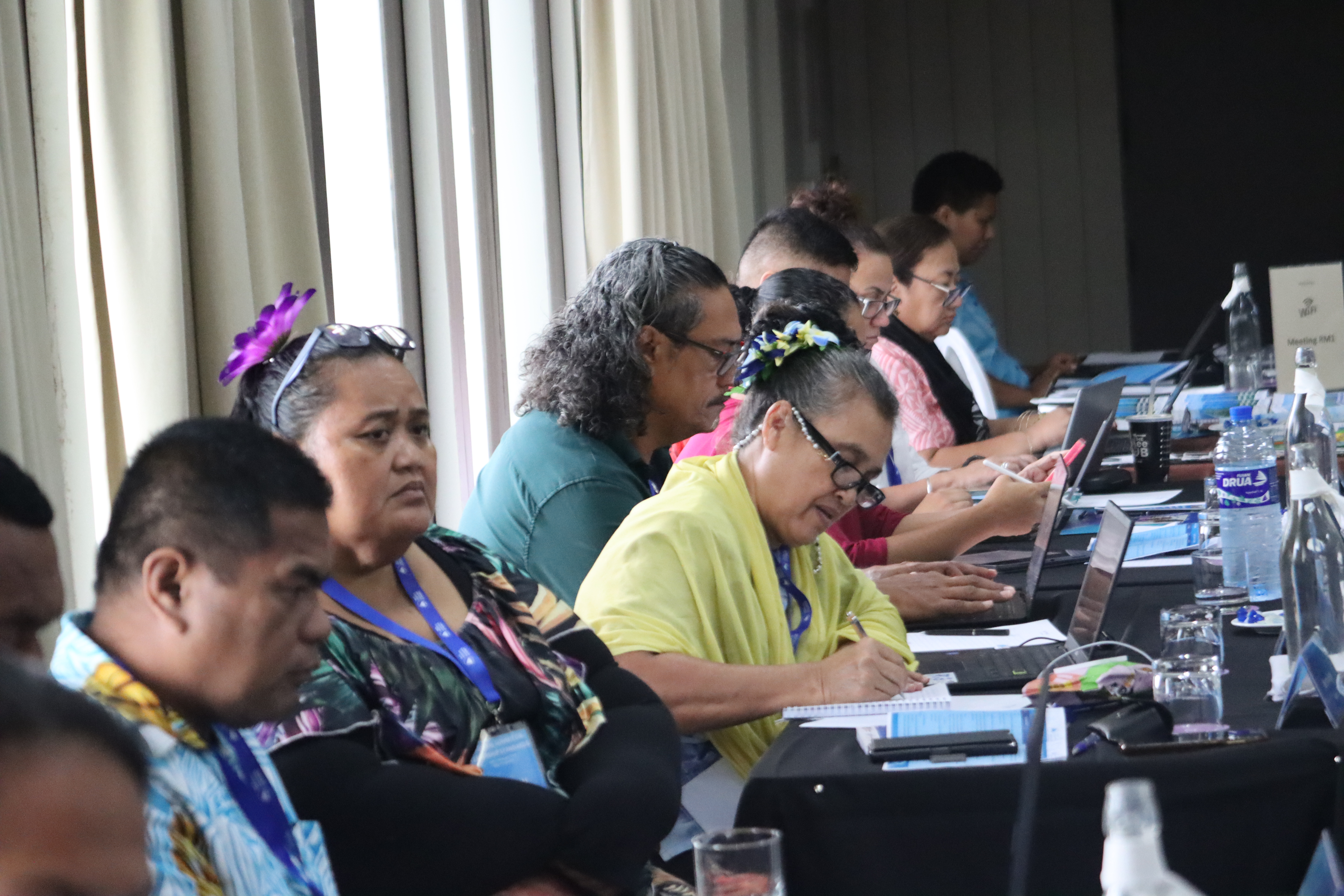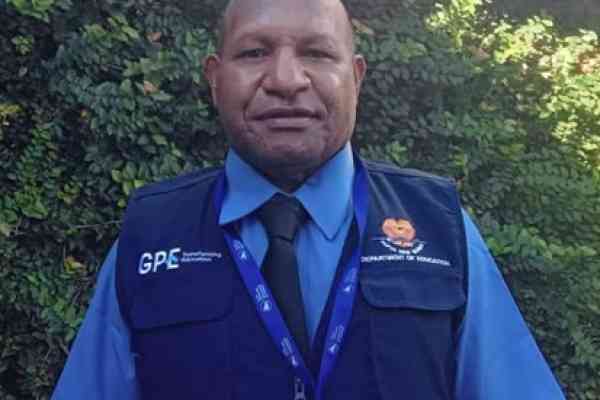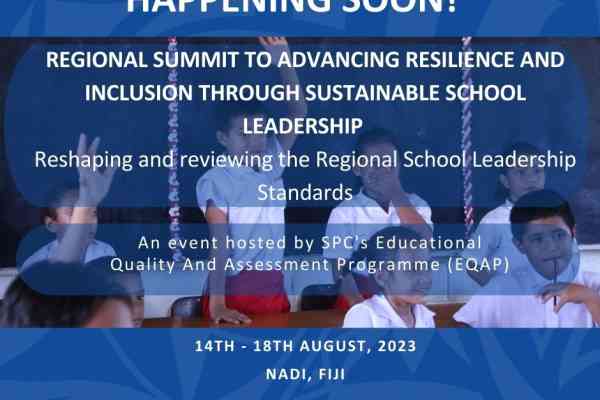(Contenu disponible en anglais uniquement)
Representatives from 15 Pacific Island countries revisited and restructured the Regional School Leadership Standards at the regional summit convened by the Pacific Community’s (SPC) Educational Quality and Assessment Programme (EQAP).
The five-day Regional Summit on Advancing Resilience and Inclusion through Sustainable Leadership was opened by the Permanent Secretary of Fiji’s Ministry of Education, Selina Kuruleca who emphasised the importance of school principals in influencing teaching and learning in schools. The summit took place between 14 to 18 August.
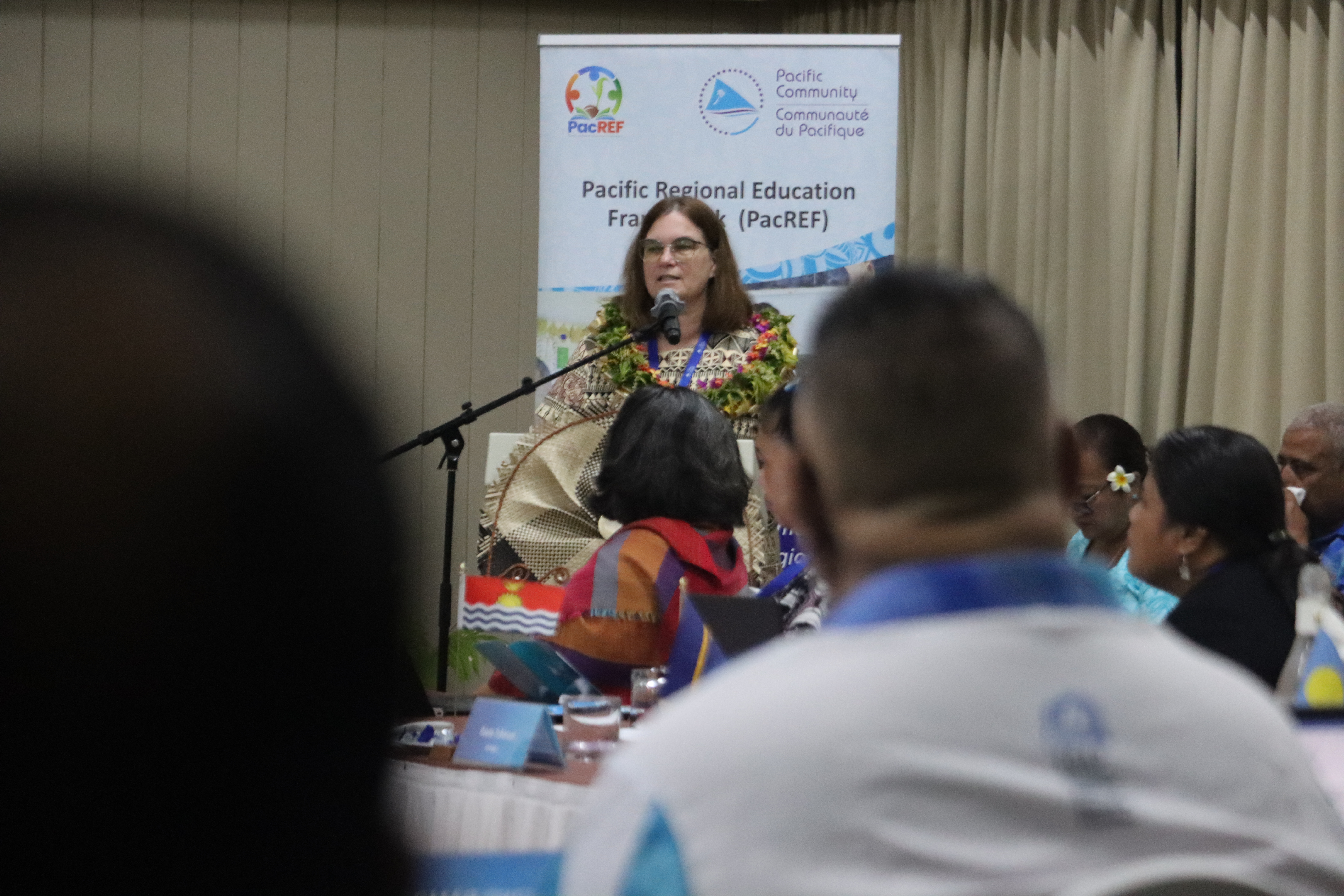
The standards, which were endorsed in 2012 by the Heads of Pacific Education Systems, helped schools and education authorities clarify the knowledge, skills, and attitudes of all principals/head teachers in their journey to influence the development of children and young people under their care. This regional document includes a set of professional standards for school principals and forms the basis for the region’s ministry and departments of education to develop their own national standards.
Raynold Mechol, Palau’s Senior Education Officer, highlighted the need for the updated Regional School Leadership Standards to reflect the region’s values and cultures, plus the expected aspirations and capabilities of school leaders.
“This summit provided a great opportunity for education and school leaders from across the Pacific region to review and reshape the school leadership standards to better reflect the core values that we have, and the challenges related to education across the Pacific, with the ultimate goal of bringing about ongoing school improvement and ultimately students success,” said Mechol.
The updates shared by the country representatives filled the existing gaps in ensuring the regional standards provide a progressive lens for effective leadership practices, adding value to the overall educational experience for students, teachers, and the entire community.
The updates also established clear expectations for educational leaders that will ensure they grow the necessary skills, knowledge, and competencies to lead schools and educational institutions effectively while overcoming contemporary challenges in their individual contexts.
Seu’ula Johanssen-Fua, Director of the Institute of Education of the University of the South Pacific (USP), explained that the summit allowed country representatives to recast the new regional school leadership capabilities and standards enabling countries to see value in the regional collective good and then adapting and contextualising it to their own national standards.
“Two key things that I would like to draw attention to from this summit is the recognition that the school leaders will also need to be paying attention to their roles during natural disasters, especially around the area of disaster risk management. The other one is focussing on the role of an instructional leader in improving learning for our children in the classroom. That is a key role of being a school leader,” she added.
The Summit, which was funded by the Global Partnership for Education (GPE) and disbursed through the Asian Development Bank (ADB) under the Pacific Regional Education Framework (PacREF), convened not only school leaders, education managers and ministry officials but also representatives from regional and international school leadership training institutions and key speakers from across the region and abroad.
This cohort had discussions around country experiences on the different roles of principals, the various factors hindering or supporting principals’ effectiveness in promoting a culture of learning and formulating a framework that encapsulates the ideal attributes and professional ethics of a regional school principal.
Following the conclusion of the Summit, processing and consolidating the recommendations and outcomes from the deliberations commenced. A first draft of the revised Regional School Leadership Standards will be developed and circulated amongst the 15 member countries before the end of 2023. The finalised document will be tabled for endorsement at the Pacific Heads of Education Systems (PHES) meeting in early 2024.
